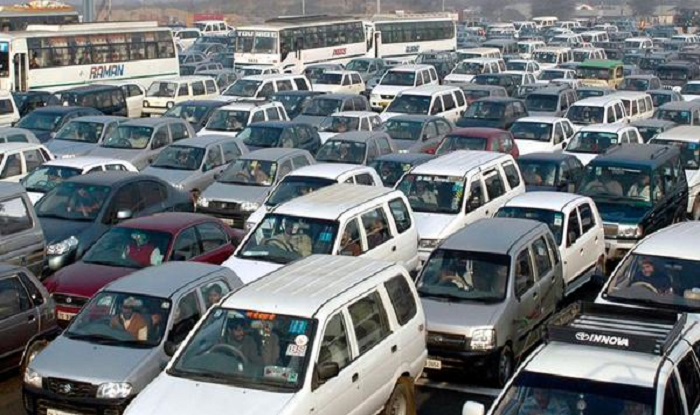-
Tips for becoming a good boxer - November 6, 2020
-
7 expert tips for making your hens night a memorable one - November 6, 2020
-
5 reasons to host your Christmas party on a cruise boat - November 6, 2020
-
What to do when you’re charged with a crime - November 6, 2020
-
Should you get one or multiple dogs? Here’s all you need to know - November 3, 2020
-
A Guide: How to Build Your Very Own Magic Mirror - February 14, 2019
-
Our Top Inspirational Baseball Stars - November 24, 2018
-
Five Tech Tools That Will Help You Turn Your Blog into a Business - November 24, 2018
-
How to Indulge on Vacation without Expanding Your Waist - November 9, 2018
-
5 Strategies for Businesses to Appeal to Today’s Increasingly Mobile-Crazed Customers - November 9, 2018
VI will not improve air quality,may push car prices: Maruti
Road Transport Minister Nitin Gadkari said on Wednesday that Indian oil companies need to invest 30,000 crore ($4.5 billion) to produce Euro VI-complaint fuel by 2020.
Advertisement
A government-commissioned panel had earlier suggested implementing BS VI norms from 2024, but in the larger interest it has been chose to advance the dates, Gadkari told mediapersons on Thursday.
The CSE had in November previous year criticised the government for retaining BS III standards in many parts of the country until April 2017, saying it is unacceptable that improved emissions standards and thereby better health protection is available only in some parts of the country.
In October 2015, it was announced that BS-V norms would be applied from 2019, followed by BS-VI in 2023, but it now appears the government will go straight to the stricter emission standards in a bid to cut down on pollution caused by vehicles. Nitin Gadkari (Minister of Road Transport & Highways and Shipping), Anant Geete (Minister of Heavy Industries and Public Enterprises), Prakash Javadekar (Minister of Environment, Forest and Climate Change) and Dharmendra Pradhan (Minister of Petroleum and Natural Gas) were present at this meeting. The Ministry expects the Indian Automobile industry, with its technical competence and commitment to environment, to rise to the occasion and support the decision.
All the other ministries have assured cooperation to make the implementation successful, he added.
Earlier, Society of Indian Automobile Manufacturers (SIAM) had written to the government saying there was a substantial difference in the technologies of BS-VI and BS-V engines. The development comes at a time when air pollution, especially in the Capital, has become a major issue. The rest of the country is supplied with Euro III grade fuel.
Advertisement
By switching to BS-VI by April 2020, India will adopt the standards now followed by the US, Japan and the European Union. But moving from BS-IV to BS-V or BS-VI fuels costs double.





























